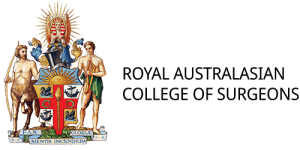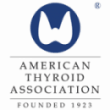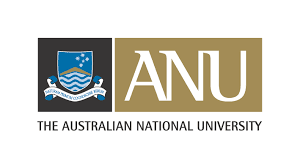HEAD & NECK CANCER PATIENT INFORMATION
Specialist Head & Neck Surgeon in Canberra
Dr Ebrahimi is one of the few specialist Head & Neck surgeons in Canberra with years of experience and fellowship training in leading Australian and International centres.
The term Head and Neck Cancer describes a wide range of malignancies that arise from the lining of the mouth, throat, sinuses and voice box as well as the skin, salivary glands, thyroid and lymphatic system of the head and neck region. Treatment decisions in head and neck cancer are often complex and usually need input from multiple specialists. It is important that patients are managed by an experienced Head and Neck Surgeon with the necessary expertise to treat these often complex tumours to achieve best outcomes, maximising the chances of cure while maintaining function and quality of life.
Dr Ebrahimi's approach to head & neck cancer
- Dr Ebrahimi has extensive subspecialist training and experience in all aspects of head and neck cancer surgery including robotic and reconstructive surgery. He is one of the only subspecialist fellowship trained Head and Neck Surgeons in Canberra.
- We focus not only on cancer cure but also maintaining function and quality of life while optimising cosmetic outcomes after surgery.
- We base your care on the latest scientific evidence. Dr Ebrahimi has authored numerous international research publications on head and neck cancer, complex skin cancer, thyroid cancer and reconstructive surgery in the head and neck.
- When there is a concern about head and neck cancer, we will make every effort to see you as quickly as possible and ensure all appropriate investigations are performed efficiently to establish the diagnosis, stage the cancer and fast track the best treatment
- Head and neck cancer and it’s treatment is complex and often daunting for patients and their families. Dr Ebrahimi will take all the time you need to discuss the diagnosis and treatment options in detail with you and answer your questions to make sure you feel well informed and empowered in your care
- Dr Ebrahimi works closely with a team of highly skilled specialists and allied health staff at the Canberra Hospital Multidisciplinary Head and Neck Cancer team meeting
- Dr Ebrahimi established the Transoral Robotic Surgery (TORS) program in Canberra which can offer selected patients with throat cancer minimally invasive surgery
What is head & neck cancer?
The head and neck area may be affected by a range of cancers that are classified based on their location and the type of cancer cells. Head and neck cancers usually begin in the squamous cells that line the moist mucosal surfaces inside the head and neck including the mouth (oral cavity), nose and sinuses, throat (pharynx) and voice box (larynx). These cancers are referred to as squamous cell carcinomas (SCC) and account for about 95% of cases. Head and neck cancer may also arise in the salivary glands, thyroid, skin, eyes and ears but these are usually classified separately.
How common is head & neck cancer?
There are approximately 3500 new cases of head and neck cancer diagnosed in Australia each year. This represents 2-3% of all cancers. Head and neck cancer is nearly twice as common in men and often diagnosed in people over the age of 50.
What causes head & neck cancer?
The most important risk factors for head and neck cancer are tobacco (cigarette smoking, cigars, pipes, chewing tobacco or snuff) and alcohol use. They are responsible for over 75% of cases and are especially important for cancers of the mouth, throat and voice box. Infection with the human papillomavirus (HPV) is a risk factor for some types of head and neck cancer, particularly oropharyngeal cancer (this includes tonsil cancer and tongue base cancer).
Other risk factors for head and neck cancer include increasing age, male gender, race, sun exposure for lip and skin cancer, inhalation of certain chemicals and dusts, the Epstein-Barr Virus (EBV), chewing betel nut and possibly a diet low in fruit and vegetables. Some patients do not have an identifiable cause for their cancer.
Screening and prevention of head & neck cancer
No routine screening tests are used. White patches in the mouth, known as leukoplakia, and red patches, known as erythroplakia, may precede the development of oral cancer and it is important to obtain specialist advice on these conditions. The risk of head and neck cancer can be reduced by not smoking (or quitting) and reducing alcohol consumption.
Symptoms of head & neck cancer
Head and neck cancers may cause a variety of symptoms depending on the site, type and stage of the cancer. Symptoms may include a lump or sore that does not heal, swelling, bleeding, pain or numbness, trouble speaking, problems with dentures or loose teeth, hoarse voice, trouble breathing, difficulty chewing or swallowing, persistent ear pain, a neck lump, a blocked nose or nose bleeds, a bulging or watery eye or visual disturbances These symptoms may also be caused by many other less serious conditions. You should check with a your doctor if you have any of these symptoms.
The diagnosis of cancer needs to be confirmed by a biopsy. This involves removal of a tissue sample that is then examined under a microscope by a pathologist to check for cancer cells. Biopsies can often be performed in the office with local anaesthetic but occasionally require sedation or general anaesthesia in the operating room.
How is head & neck cancer staged?
Cancer can typically spread in the body in three ways. It can invade the surrounding normal tissues, spread through lymphatic vessels to the lymph nodes in the head and neck (lymph node metastases), or through the bloodstream to other places in the body such as the lungs (distant metastases). The extent of the cancer (or stage) is defined by the size of the lump, spread to adjacent structures, spread to lymph nodes in the head and neck, and spread to other sites in the body such as the lungs, liver or bones.
We will obtain this information based on an office examination (including a nasoendoscopy through the nose), imaging which may include ultrasound, CT, MRI or PET scans and sometimes an examination under general anaesthesia in the operating room. This information is used to stage the cancer using an international staging system called the TNM system. The T refers to the primary tumour, the N to the lymph nodes and the M to metastasis elsewhere in the body. The staging is important in treatment planning and also to provide you with general prognostic information about the chances of cure.
How is head & neck cancer treated?
The treatment of head and neck cancer depends on the size and location of the tumour, whether the cancer has spread, and your overall health. You will be cared for by a range of health professionals who specialise in different aspects of your treatment and work in collaboration with Dr Ebrahimi. This is called a multidisciplinary team and is an important part of head and neck cancer treatment. The team may include a Head and Neck Surgeon, Reconstructive Surgeon, Radiation Oncologist, Medical Oncologist, Nurses, Speech Therapists, Dieticians, Dentists and Social Workers who will be an important part of your treatment and recovery. When planning treatment we will discuss treatment options with you, help you weigh up the advantages and disadvantages of each approach, and consider the possible side effects which may affect the way you look, feel, speak, eat and breathe.
Head and neck cancers are typically curable when found early. The common treatment options include surgery, radiation therapy, chemotherapy or a combination of these. Surgery involves removal of the cancerous tumour and some of the healthy tissue around it. Often lymph nodes in the neck that are known to be involved or at risk are also removed at the same time. This is called a neck dissection. Depending on the location and extent of your tumour, reconstructive surgery may also be necessary to optimize your functional and cosmetic outcomes. Head and neck surgery is complex and the best outcomes are obtained with subspecialist trained, experienced, high volume surgeons.
Radiation therapy involves the use of high-energy x-rays to destroy cancer cells. It may be the main treatment instead of surgery, or it may be used in addition to surgery to reduce the risk of recurrence. Chemotherapy involves the use of drugs to destroy cancer cells, and is often combined with radiation therapy. Dr Ebrahimi works in close collaboration with highly skilled and experienced Head and Neck Radiation and Medical Oncologists at Canberra Hospital and will involve them in your care when appropriate.
Seeking a second opinion
After consulting with your health care team you may want a second opinion about your diagnosis and treatment plan. Some people worry that the doctor will be offended if they ask for a second opinion. However, specialists are used to this and often welcome a second opinion. They may help arrange a second opinion in many cases, and will still be happy to treat you if that’s what you decide. This can be an important part of the decision making process for some patients. It may confirm or clarify your doctors recommended treatment plan or offer an alternative approach. Either way it may reassure you that you have explored all your options and allow you to feel more confident about the decisions you make.
Understanding cancer prognosis
Prognosis means the expected outcome of a disease and chance of cure. It is important to discuss your prognosis with your doctor. Although the type, location and stage of your cancer allows an educated estimate of your prognosis, there are many other factors that influence survival and every individual is different. Because of this no doctor can give you a completely accurate prediction about the course of the illness. Typically if a head and neck cancer is going to recur it does so within the first few years after treatment but this is not always the case. Your health care team will usually continue close follow-up for at least 5 years at which time many cancers are considered to be cured.
Dr Ebrahimi has studied staging systems for head and neck cancer extensively in an effort to provide head and neck cancer patients with more accurate information about their prognosis. He was a lead investigator in the International Consortium for Outcome Research (ICOR) in Head and Neck Cancer, with his research culminating in changes to the latest edition of the American Joint Committee on Cancer (AJCC) staging system for oral cancer.
For more information on head & neck cancer
Dr Ebrahimi is a founder and previous director of HEAD & NECK CANCER AUSTRALIA (FORMERLY KNOWN AS BEYOND FIVE), Australia’s first dedicated head and neck cancer charity, established to support patients with head and neck cancer by providing comprehensive, reliable and easily accessible information to help them in their cancer journey. He played a central role in developing information materials on the following cancers and recommends using the HANCA website for more information about the various cancer types and treatment details using the links below.
- Oral cancer overview and treatment
- Oropharyngeal cancer (including tonsil and tongue base cancer) overview and treatment
- Human papillomavirus (HPV) and throat cancer overview
- Salivary gland cancer overview and treatment
- Thyroid cancer overview and treatment
- Unknown primary cancer overview and treatment
- Laryngeal (voice box) cancer overview and treatment
- Hypopharyngeal cancer overview and treatment
- Nasal and sinus cancer overview and treatment
- Nasopharyngeal cancer overview and treatment














